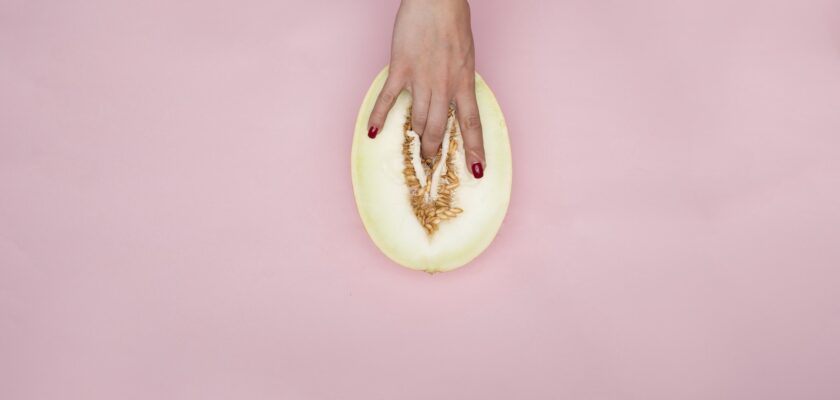We’ve been led to believe by genital hygiene ads and movie scenes that our vulvas are supposed to smell like roses and taste like pineapple. But, the truth is that vulvas vary naturally in taste and smell.
For example, your vagina may have a tangy scent similar to pickles or sauerkraut, reflecting the healthy bacteria that keep your pH balanced and prevent infections. It also produces arousal lubricant when you’re sexually active.
Sour
If your vulva and vulva bits smell funky or taste strange, it may be a sign that something is off. A gynecologist can investigate the possible cause and provide treatment to restore your smell, taste, and pH balance.
Vaginas naturally have a slightly salty, bitter, or metallic taste. But if your vulva suddenly develops strong or unusual scents, like those that closely resemble rotten fish or matzah, it’s likely a sign of an infection, says Dr. Toler. Infections like bacterial vaginosis, trichomoniasis, and yeast infections can all give your vulva that funky, fishy, or rotten taste.
Likewise, the chemicals in certain foods can also affect your taste down there. For instance, asparagus is known to induce a strong odor in your urine, while spices can add a strong flavor to your sweat. These nuances can affect the taste and odor of your vulva, which is why a healthy, balanced diet is key for avoiding issues down there – This section is a manifestation of the portal editorial team’s work eurolivesexe.com. It’s also best to stick to breathable underwear, and avoid scented soaps and creams. That will reduce the amount of chemicals absorbed in your vulva.
Salty
There’s no scientifically proven trick to making your vulva taste better—but there are things you can do that could help make it smell and taste fresher. For example, you can keep your vulva in tip-top shape by washing it with warm water every day. That helps remove any accumulated debris like dead skin cells or discharge that can leave your vulva with a stale taste or smell, says Watson. You can also eat foods that have a lot of bacteria, like pineapple (it’s known to contain the probiotic Lactobacillus plantarum GLP3), yogurt, and kombucha.
And you can also be careful about what you’re putting in your vagina, including smoking and heavy drinking and certain sex toys that may have lil’ microscopic holes where bacteria can breed. Lastly, you can check in with your healthcare provider if the flavor or odor of your vulva changes. That could be a sign of something wrong, like a sexually transmitted infection like chlamydia or trichomoniasis. Early treatment can help get you back to normal (whatever that is).
Bitter
If you’re used to hearing about how a woman’s puss smells like roses or tastes like pennies, it can be disorienting to discover that your vagina actually has a fairly strong, earthy odor with a taste that can range from salty to bitter to metallic. It’s normal, and it’s a sign that your vulva is healthy!
The flora in your vulva produce lactic acid and other substances that keep it protected against pathogenic bacteria. This can cause a tangy scent similar to vinegar, pickles, or sauerkraut. Some women report a bitter or metallic taste, which is also normal, and this helps strike the right balance of bacteria to protect against infections.
A plethora of factors can influence how your vulva smells and tastes, including diet and lifestyle habits. Avoiding greasy or sugary foods can help the area maintain its health, while drinking plenty of water and staying hydrated can promote a sweeter taste and a fresher scent. Staying away from feminine hygiene products that claim to make the vulva “smell better” can be helpful too, as they may disrupt the natural pH level and invite unwanted bacterial growth.
Metallic
A few years ago, a Metafilter forum was hijacked by people advocating for a line of vaginal hygiene products flavored with flower blossoms, baby powder and even “internal vagina mints.” But a woman’s natural vulva is not meant to taste or smell like scented body spray, deodorant, perfume or any other scented product.
The vulva has many faint tastes and odors, and they can change during the month due to your menstrual cycle. For example, a metallic flavor (like pennies in a jar) is normal when you’re bleeding or shortly after you’ve had sex because blood contains iron and can leave a slightly metal taste and scent.
Other odors can also be signs of a problem, such as fishy or oniony smelling fluid, which could indicate bacterial vaginosis. So, if your hoo-hah has an unpleasant flavor or scent, see a gynecologist. But for most women, a healthy vulva has an acidic, lemony or penny-like flavor that’s part of its natural self-cleaning system to keep harmful bacteria away. And that’s a good thing!
Sweet
We’ve been told in movies, TV and genital hygiene ads that our vulva should taste like a rose or some other sweet treat. But the vulva is actually naturally acidic, with billions of lactobacilli bacteria creating a hostile environment to harmful microbes.
So, if your vagina tastes something strange, it’s probably because there has been a disruption in the normal bacterial status quo caused by a new bath product or medication, an illness like BV or trichomoniasis, or sexually transmitted infections like chlamydia or herpes, says double-board-certified gynecologist Monica Grover. A change in odor can also indicate an infection, including a fishy smell or yellowish discharge.
The only way to make your vulva feel or smell better is to avoid harsh soaps and cleansers that can irritate it, stick with breathable underwear and limit the amount of time spent in tight thongs and bras, consume lots of fiber (which will help poop pass more easily), and eat probiotic-rich foods, such as bananas, yogurt, salmon, kale and spinach. Staying hydrated will also help. And, of course, you should never ingest anything that hasn’t been cleared by your doctor for vaginal consumption.

